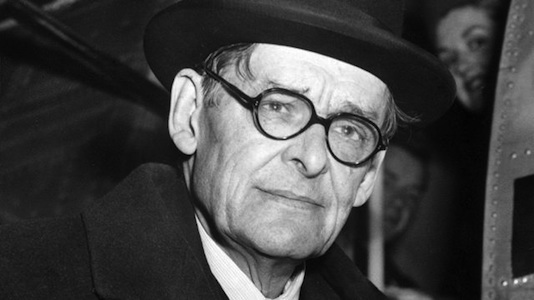Banish Insomnia with a Little Help from T.S. Eliot
August 16, 2013

There are nights when I get into bed, determined to sleep, but spend the next hour or two having what feels like a brain hurricane: I replay the day’s events, analyze conversations had, worry about tomorrow, lament the fact that I’m still not asleep, and then do it all over again.
As a kid, I remedied the situation by listening to cassette tapes of Fantastic Mr. Fox and James and the Giant Peach, but now that I’m pushing thirty, a more adult solution seems necessary. Enter T.S. Eliot. This live recording of the inimitable poet reading his lengthy 1915 masterpiece, “The Love Song of J. Alfred Prufrock,” has become my go-to bed-time soundtrack on nights when my brain just won’t quit.
The poem helped launch Eliot’s career—not to mention the Modernist movement in poetry. Granted, its themes are a bit heavy (modernity-induced neuroses, self-doubt, death). But those aside, it’s really the rhythm that I’m after: the hypnotic rising and falling of Eliot’s voice, his careful emphasis of certain words, his old-timey British-American-hybrid accent.
I must have listened to it a hundred times, but the vividness of the imagery always sneaks up on me: yellow smoke rubbing its muzzle on the window pane, restless nights in one-night cheap hotels, a life measured out with coffee spoons.
And while I listen, there’s something about the repetition of that line—there will be time, there will be time, there will be time—that lulls me and helps to slow the gears in my brain. As I get drawn into the narrator’s stream of consciousness, I feel my own abating. So by the time Eliot gets to that not-exactly-uplifting last line (Till human voices wake us, and we drown), I’m usually pleasantly passed out.







